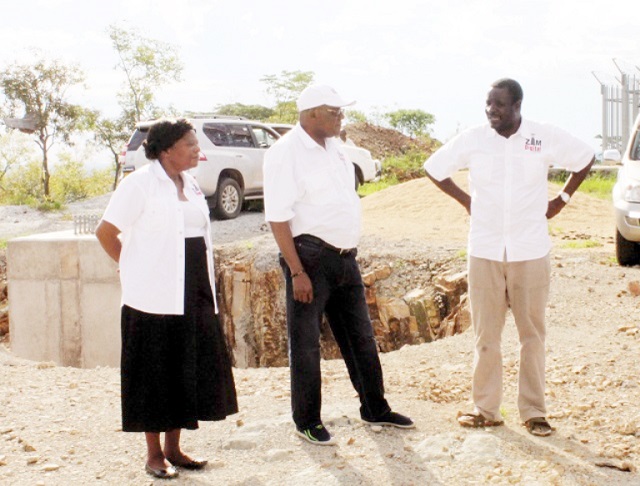
The Sunday News

 Information, Media and Broadcasting Services Minister Chris Mushowe flanked by his deputy Thokozile Mathuthu (left) and Permanent Secretary in the ministry George Charamba
Information, Media and Broadcasting Services Minister Chris Mushowe flanked by his deputy Thokozile Mathuthu (left) and Permanent Secretary in the ministry George CharambaPeter Matika, Senior Life Reporter
THE digitisation drive for the broadcast industry is bringing the showbiz industry to life, as players in the sector are keen and excited to work towards providing content.
The national project will also likely see fresh talent making its way into the industry, as it is already recording a rapid rise in players in the television and radio industry.
During a content producers meeting held in Lupane a fortnight ago, Information, Media and Broadcasting Services Deputy Minister Thokozile Mathuthu urged artistes and members of the public alike to come up with quality programmes for local television.
She also said through this drive the local film industry was going to be decolonised while also contributing to the country’s gross domestic product (GDP).
She said; “Through submitting content, we are able to develop our respective districts, thereby creating our own Zollywood.”
“There are TV programmes like Mr Bean, the weird and eccentric comedian. We found humour from his silly antics but he made a lot of money through that. Why can’t we then come up with programmes that promote our people?
“We can’t be subjected to programmes that undermine a people or race like how white people did with some of their programmes,” said Deputy Minister Mathuthu.
Some players in the industry that spoke to Sunday Life said it was about time that the project took off.
“We have been struggling in the industry but with this initiative it is our hope that we fast gain deserved acknowledgement. It is our hope to create an interesting film industry that tells local stories, stories that people can identify with,” said local award winning film producer and animator Mhle Nzima.
The Government is presently working hard to revamp Zimbabwean television by adding extra channels in the ongoing digitisation programme.
Five extra channels will be added to the national broadcaster, which will cater for everyone.
Another film producer, Fortune Tazvivinga said it would be ideal to have TV programmes that catered for all age groups, as she is mostly concerned with children’s education and entertainment.
“It would be quite exciting to have a children’s channel, where they can find entertainment and education. As a children’s book writer and doll maker this is a great initiative for us and will likely create a lot of jobs for youth out there,” she said.
Many other players in the industry shared the same view, saying that they were in full support of the government’s project, which will benefit the whole country.
Deputy Minister Mathuthu, during the content producers meeting said it was Government’s hope to bring back viewership to the national broadcaster, which has been lost to Dstv.
“Some programmes on Dstv are conflicting with our national values and culture. It is our hope that we bring back viewership to our national broadcaster, which we lost greatly to Dstv.
“Dstv became the preferred option for many, as they broadcast engaging and thrilling content, which is what viewers expect generally,” she said.
So far the national project has received 719 proposals from content producers countrywide.
“This project is open to everyone. This is not a political project but a national project that will benefit the whole country. Don’t be left out. This is a project that will contribute greatly to the country’s GDP, by creating millions of jobs,” said Deputy Minister Mathuthu.
Zimbabwe is in the process of migrating from analogue television broadcasting to digital.
@peterkmatika



